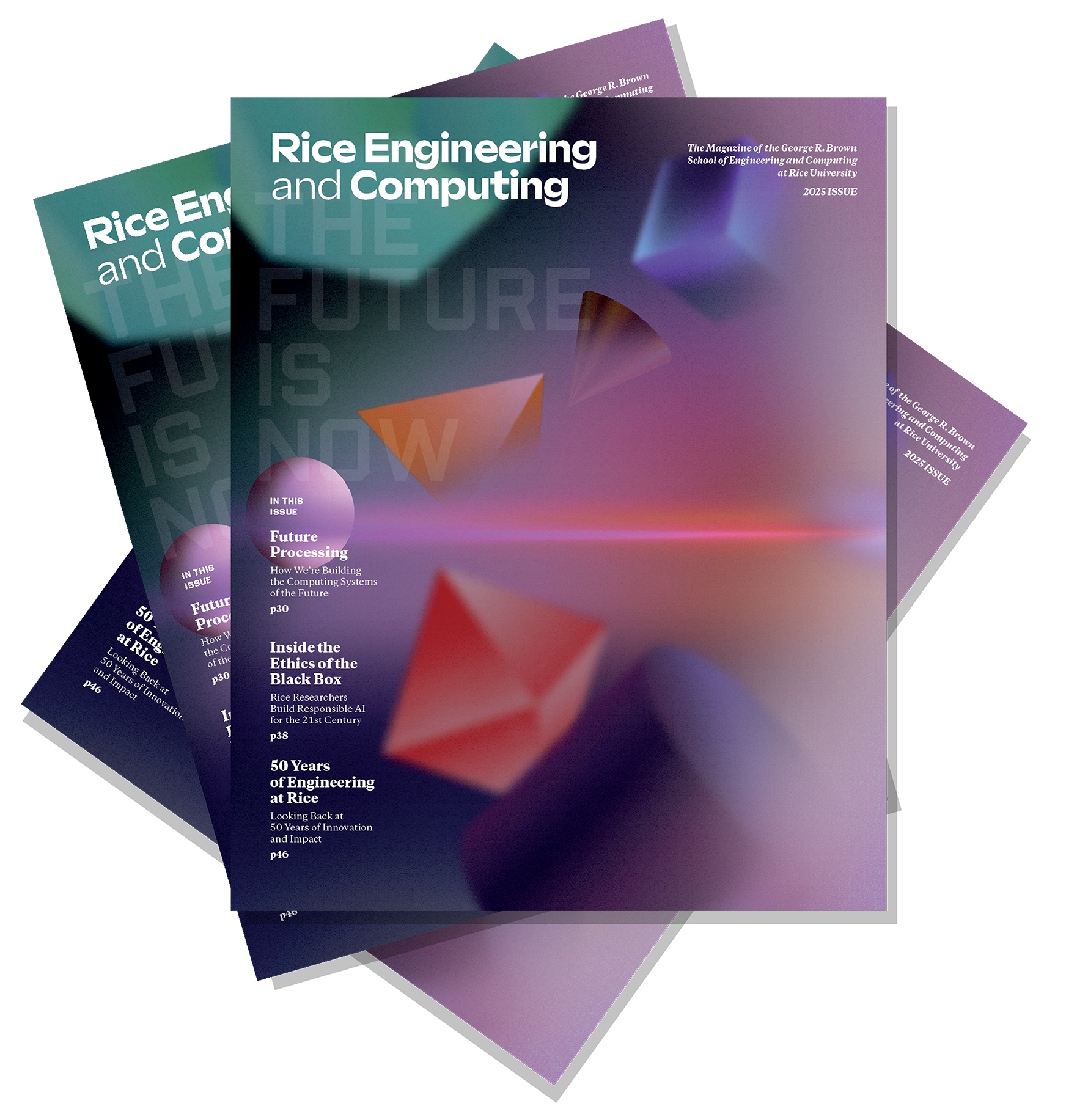
The 2025 issue of Rice Engineering and Computing Magazine is here!
In our 50th anniversary issue, we celebrate the deep and growing connection between engineering and computing. From our early breakthroughs in high-performance computing to today’s advances in AI and data science, Rice has long been at the forefront of computing innovation. This edition highlights some of the people, ideas, and investments shaping what’s next.
Rice-Led Research Leverages AI to Boost Coastal Storm Response
Coastal communities face compounded risk from tropical cyclones and coastal storm events. A Rice Engineering and Computing-led team has secured $1.5 million from the National Science Foundation (NSF) to improve the safety and resilience of coastal communities by providing timely and reliable insights to emergency response organizations and local communities before, during and after severe storms.

Jamie Padgett, Ben Hu and Avantika Gori are working with collaborators to develop and deploy an intelligent system called “Open-Source Situational Awareness Framework for Equitable Multi-Hazard Impact Sensing using Responsible AI,” or OpenSafe.AI. The system will leverage responsible AI, hazard and resilience models and multimodal urban data to deliver real-time insights.
Focus groups with emergency responders revealed a lack of integrated, scientifically sound information and technology platforms available to support decision-making. OpenSafe.AI will fill this gap.
“Our goal with this project is to enable communities to better prepare for and navigate severe weather by providing better estimates of what is actually happening or might happen within the next hours or days,” said Padgett, Rice’s Stanley C. Moore Professor in Engineering and chair of the Department of Civil and Environmental Engineering. “OpenSafe.AI will take into account multiple hazards, such as high-speed winds, storm surge and compound flooding, and forecast their potential impact on the built environment, such as transportation infrastructure performance or hazardous material spills.”
The interdisciplinary project brings together key local stakeholders and researchers from Rice University’s Severe Storm Prediction, Education and Evacuation from Disasters (SSPEED) Center and Ken Kennedy Institute, as well as Texas A&M-Galveston’s Institute for a Disaster Resilient Texas.
As part of its long-term vision, the OpenSafe.AI project will explore how the system can be adapted and scaled for other regions facing similar challenges.
